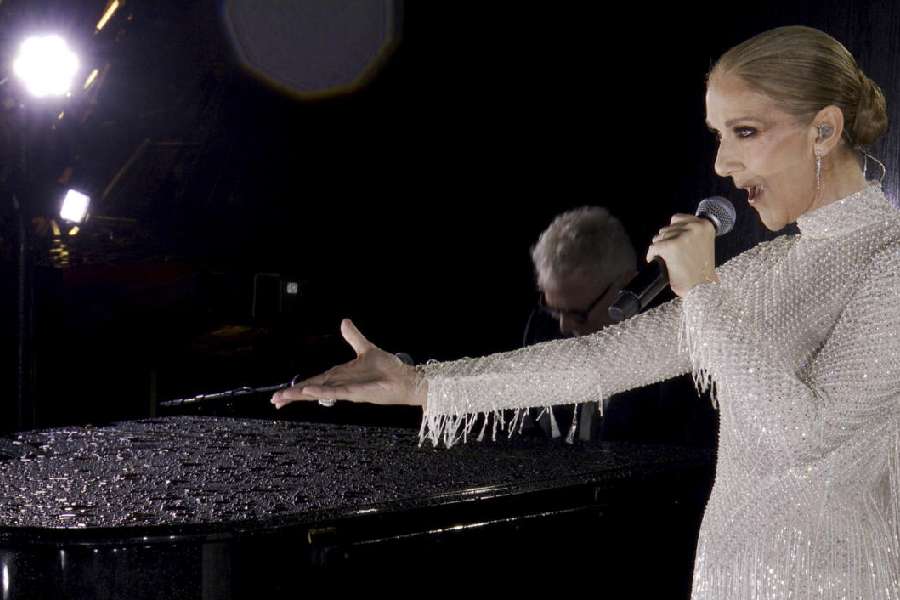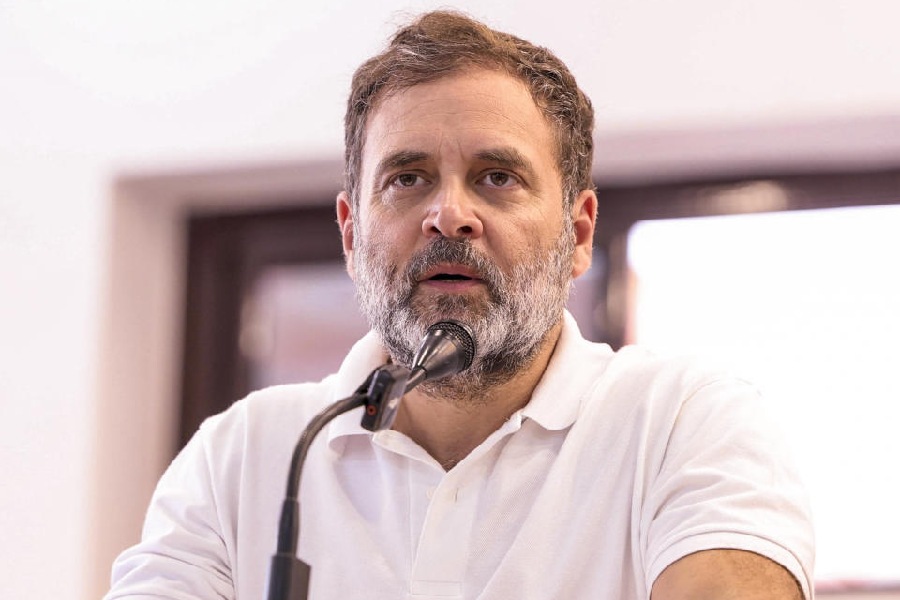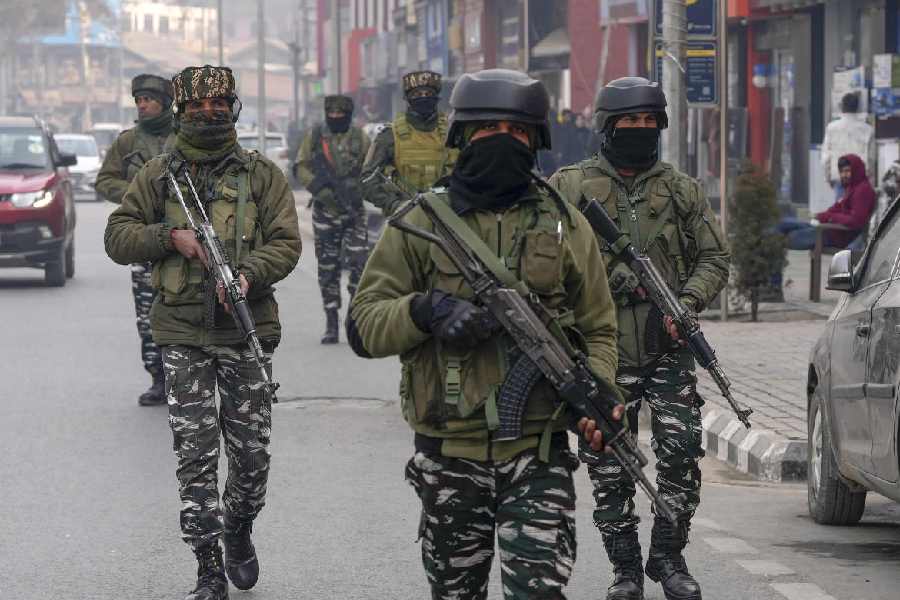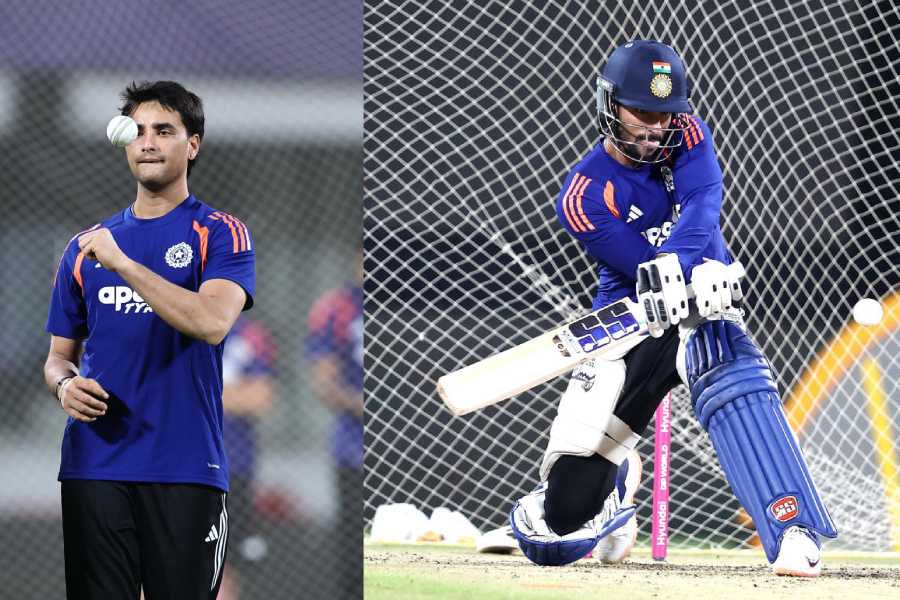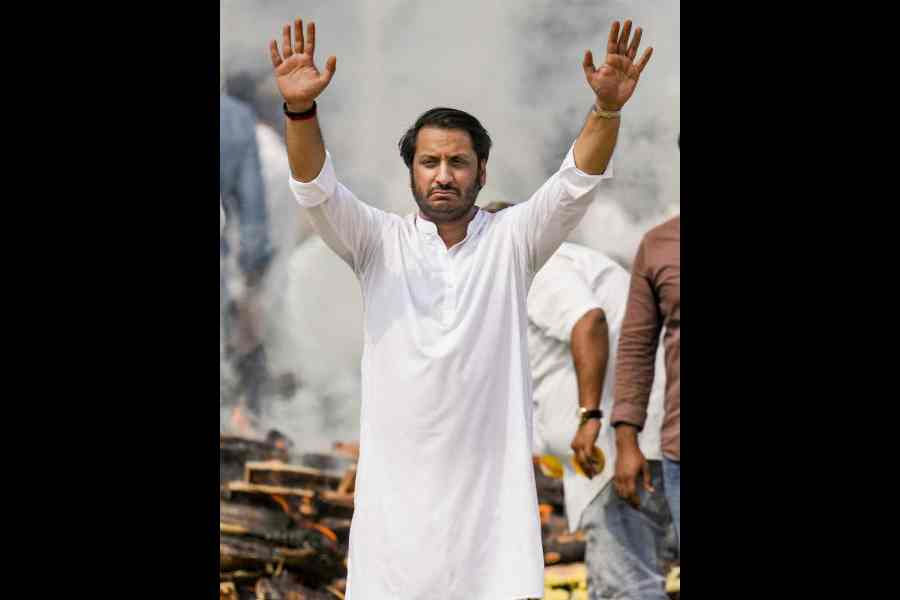No one in this time of YouTube follows inconveniently timed events live anymore. And so it was that I watched Celine Dion’s show-stopping, Eiffel-elevated finale to the opening ceremony of the Olympics the morning after it happened, in the loo on my mobile phone. And it was still magnificent; the kind of glorious hokum that makes you want to giggle and cry at once. She sang a song made famous by Édith Piaf, in a long white dress, picked out by spots in the gathering dark, halfway up the Tower, itself lit from within to look like a filigreed monument to Modernity.
The opening ceremony needed the lift that Dion gave it. The organisers had decided to replace the normal, stadium-bound spectacle with an open-air procession of boats down the Seine, but it rained so hard on this waterborne parade that spectators along its riverside route had to swap Parisian chic for transparent plastic ponchos. There’s a brilliant photo of Keir Starmer in a hoodie, looking like your archetypal Everyman, flanked by a poncho-ed public, watching this wet republican spectacle.
But the politician for whom this spectacle really mattered was Emmanuel Macron who had hoped the Paris Olympics would be a celebration of his second and final term as president. French presidents have traditionally had a weakness for the grand project or occasion and Macron is no different; not for nothing is he called Jupiter.
By the time the Olympics came around, Macron was a lame duck. His Centrist coalition had lost its majority in the National Assembly because of the elections that he had impetuously called and he faced the prospect of seeing out his second term hamstrung by a legislature he couldn’t control. Thanks to a coalition improvised by France’s left-wing parties, Macron had avoided the awful prospect of cohabitation with a neo-fascist prime minister. Still, Marine Le Pen’s National Rally had won more votes than any other political party and the thwarted but very real surge of the far-Right loomed over France like a warning.
And not just France. More than America (which came before), France is the mother of all republics. It’s not for nothing that so many republics, including our own, have a tricolour for their flag. France’s red, white and blue stripes were a break from the clutter of crosses and eagles and coats of arms that marked royal standards. The idea of the rights-bearing citizen whose civic identity explicitly transcends race, faith and inherited status is French republicanism’s enduring legacy to the modern world. To see this heroic ideal marginalised by a gathering prejudice against France’s Muslim minority, stoked by the far-Right but amplified by the complicity of Centrist liberals, feels like an inflection point not just for France but the very notion of a civic, non-ethnic nation-state.
Just before the opening ceremony, France’s high-speed rail system was crippled by coordinated acts of sabotage, acts of arson that burned through the fibre optic cables that connected its network. Both the malice of the saboteurs and the speculation about their sponsor — Iran, Russia, the far-Left — is a commentary on the edgy, febrile state of the republic. The decision to host the Olympics hasn’t been a popular one given the state of France’s economy and the financial overruns that have plagued all modern Olympics. That Macron is willing to foot the bill for a sporting extravaganza at the same time as he has chosen to raise the age of retirement to trim public expenditure has infuriated swathes of French citizens across the political spectrum. He really needs the Games to go well.
The opening ceremony was a celebration of the Francophone world that included both Dion, a Canadian, and Aya Nakamura, the black, French-Malian singer. Born in Mali, Nakamura migrated to France as a child and became a citizen as recently as 2020. When it became known earlier this year that she might be invited to sing for the opening ceremony, the pillars of the French Right raged about Nakamura not being French enough. Éric Zemmour, who has the peculiar distinction of being a Jewish-French politician who defends the record of the collaborationist Vichy regime, and Marine Le Pen denounced her for singing in an argot that couldn’t be considered French.
Worse than the predictable bigotry of two far-Right politicians were the results of surveys that The Guardian reported had 63% of the respondents opposed to her headlining the opening ceremony. Nakamura is both black and Muslim. France’s official (and Olympian) blindness to race and religion is written into legal definitions of laicité, but the truth is that France’s working definition of the good citizen doesn’t look like Nakamura or pray like her.
It’s hugely to Macron’s credit that in the face of a political and popular prejudice, he made sure that Nakamura didn’t just sing, she was backed up by the band of the Republican Guard.
“L’Hymne à l’amour”, the song Dion sang, was written and recorded by Piaf nearly seventy-five years ago. It is, as its name suggests, a love song. Its lyrics are what you would expect; a woman telling her lover that his love’s the only thing that matters to her, that she’ll do anything for the sake of her love. There’s a lovely, daft rhyme where le monde is made to rhyme with blonde — she’ll go to the end of the world (le monde), even dye her hair blonde — in the service of love. The song wasn’t arbitrarily chosen, though; it has a sporting subtext. Le Monde reported that Piaf had written it “in reaction to… the death in a plane crash of the man she loved, boxer Marcel Cerdan.”
Watching Dion sing it flawlessly, her voice soaring into the night, was poignant for more than one reason. She has an affliction called stiff person syndrome, which robs her of all control over her body, including her vocal cords. She hasn’t toured in a while; this was her first public performance since 2020. To pull it off despite everything, as she did, was extraordinarily moving. The other reason it was poignant was the innocence of the choice, a love song, where another culture might have chosen an anthem. There was a nice swagger to it, too; the French doing love the way they do.
But also sadness. This was a song that Piaf first sang in 1950, in another France, a time when it ruled the Francophone world as an empire. Algeria was still a colony and Maghrebi Muslims had yet to settle in numbers in Paris’s banlieues. It was a world where an overwhelmingly white French metropolis didn’t have to reckon with the demographic consequences of empire. Laicité as a republican ideal, deliberately blind to colour and creed, came more easily then. So did innocence.
Having Nakamura and Dion bookend the ceremony was a fine affirmation of that revolutionary definition of citizenship. But like Piaf’s song, the gesture seemed to speak to the past, not the future.
mukulkesavan@hotmail.com

